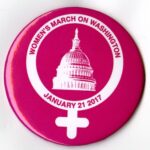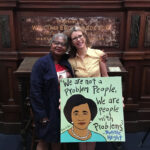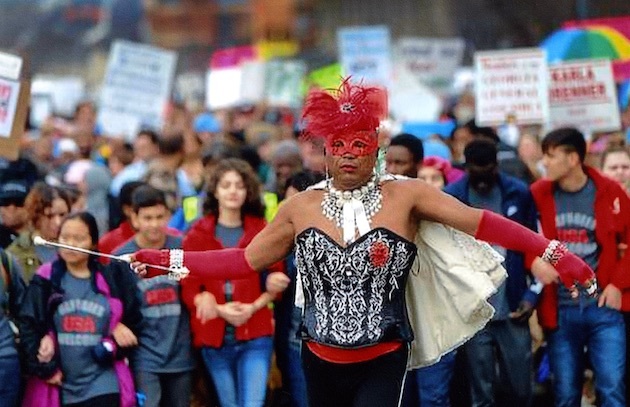Women’s March
The day after Donald J. Trump was elected the 45th President of the United States, plans began to emerge and coalesce for a Women’s March on Washington. On January 21, 2017, hundreds of thousands of protestors descended on the nation’s capital to demand positive change and to show support for many human rights issues. Sister marches were held all over the United States and in countries around the world. In Georgia, marches took place in Athens, Atlanta, Augusta, Savannah, Statesboro, and Zebulon.
Leading up to the marches, members of the Society of American Archivists’ Women Archivists section issued a statement: “We are a group of archivists… who, having discussed the social and political importance of the January 21, 2017 Women’s Marches, want to ensure the preservation of women’s voices and responses to politics and legislation in wake of the intensely controversial 2016 elections. With time to plan and strategize, we intend to document this in a way that captures the movement’s use of new-wave grassroots activism unlike other more spontaneous events in recent protest history. The end goal is to have an aggregate digital platform that will allow cohesive research. This way we can connect the materials at these various repositories.” Archivists, who predominantly document the past, decided to lead coordinated efforts to document current large-scale events.
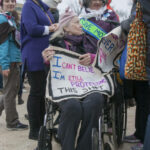


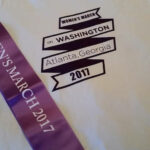
Archivists made plans to collect physical materials locally and to conduct oral history interviews that could be shared globally. Georgia State University Library was well-prepared to participate in these endeavors, as we had an active Women’s Collection with a strong focus on activism and a well-established oral history program. Immediately after the marches took place, the Women’s Collections archivist began actively collecting oral history interviews, photographs, clothing, signs, flyers, buttons, and records from Georgians who marched in any city and from any person who marched in Georgia. Donor Lucy Hargrett Draper and her niece, Chrisy Erickson Strum, have added weight to those efforts by donating their extensive collection of pro- and anti-feminist materials that contextualize the marches and document the stark differences between those who marched and those who opposed them.
